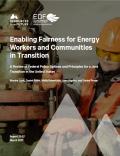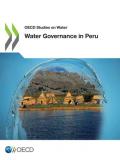The Survey for 2021 takes stock of the socioeconomic fallout from the current pandemic and looks at past economic and non-economic shocks that have inflicted damage on the region’s sustainable development prospects in order to draw lessons on how to build forward better during the post-pandemic recovery.
This report highlights inequalities and vulnerabilities that have amplified the impact of the pandemic in Asia and the Pacific and emphasizes the need for a focus on people centered development, sustainability, and climate change issues. It considers the role that digitalization has played in helping the region manage the pandemic, and the need for more inclusive digital transformation.
The COP16 Accord has been central to the climate accords since 2009 and is an important symbol of trust. It states: "developed country Parties commit, in the context of meaningful mitigation actions and transparency on implementation, to a goal of mobilizing jointly USD 100 billion per year by 2020 to address the needs of developing countries". As the bedrock of international public finance, the $100 billion commitment can work in concert with all pools of finance, including the large and untapped pools of private finance.

This paper compiles findings from a series of reports that unpack existing US and European policies related to just transition. To help policymakers identify the components of a comprehensive just transition policy package, more than 100 policies have been grouped into four primary categories.

This report provides an analysis of water governance in the country and policy recommendations to: strengthen the multi sectoral approach to water; improve the use of economic instruments to protect and sustainably use water resources, its sources and related ecosystem services; and strengthen regulatory conditions to improved access to safe drinking water and sanitation in urban and rural areas.
